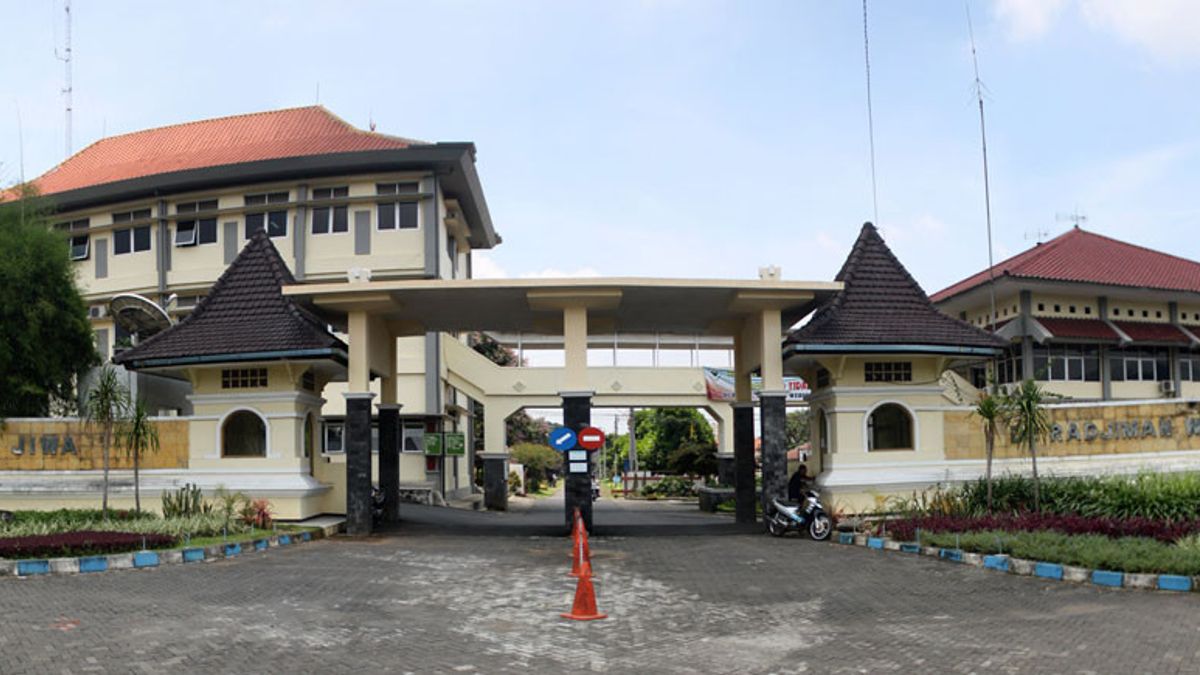JAKARTA – History today, 120 years ago, June 23, 1902, the Lawang Mental Hospital (RSJ) in Malang was officially opened. The opening of the Lawang Hospital (now: Dr. Radjiman Wediodiningrat Hospital) is proof that the Netherlands is starting to care about mental illness. Also, RSJ Lawang is the second mental disease control center in the archipelago after RSJ Bogor.
The presence of the RSJ answers the problem of people with mental disorders (ODGJ) which is increasing every year. Prior to the arrival of the RSJ, ODGJ were treated very inhumanely. ODGJ is considered to be possessed by an evil spirit or being manipulated.
Handling ODGJ in the archipelago is often careless. Ordinary people tend to treat ODGJ as if they were influenced by evil spirits or being manipulated. In fact, ODGJ often believe in being a medium or intermediary between humans and the spirit world. This assumption is for handling ODGJ using the services of a psychic (shaman).
Liberation rituals were also performed. Physical torture ---hitting and kicking--- on the premise that the spirit power is too strong to be perpetuated. Instead of recovering, ODGJ are actually in serious injury. However, if ODGJ are considered dangerous, they will be put in shackles immediately.

During the Dutch colonial period conditions did not change much. However, the Netherlands continues to try. They don't stay silent. Several hospitals were established by the Dutch East Indies colonial government. Hospitals were asked to make special rooms for mental patients.
In fact the effort was not enough. The Dutch then referred the patient to a military-owned hospital. Hospital treatment is not much different from the shamans. Handling ODGJ is fairly hard. Therefore, the military hospital at that time was like a prison for ODGJ.
“Then hospitals in Banten and Semarang were opened; even in the 1800s, a mental hospital was opened in Jakarta. Here it appears that all of this is more of a “containment” than a treatment. Even if it is something new from a mental point of view (the idea of separating sufferers from their society cannot be taken for granted in Java, even today).”
“It is conceivable that the effect is truly therapeutic to almost nil. Perhaps the only positive thing is the search for mineral water in the volcanic mountains around the capital city (hot springs in Cipanas have been used since 1745) which pioneered the development of resorts in the mountains and 19th century spas," said the historian. Denys Lombard in the book Nusa Java Cross Culture: Westernized Boundaries (1996).

The colonial government did not necessarily give up. They continue to improve the handling of ODGJ. The ideas to build RSJ also emerged. The Netherlands wants to concentrate the treatment of mental illness in one place.
The idea was greeted with enthusiasm. Moreover, many of the people of the Dutch East Indies became ODGJ because of the plague and war. Finally, the first RSJ located in Bogor was built in 1882. The presence known as Krankzinningengesicht te Buitenzorg helped a lot.
This success made the Dutch decide to build a second RSJ in the archipelago. His name is RSJ Lawang. The RSJ in Malang was officially operational on June 23, 1902. After that, RSJ Lawang helped the Netherlands a lot against mental illness.
“In 1800 mental patients had been collected in wards and their treatment was curative. RSJ was first established in 1875 in Cilandak Bogor with a capacity of 400 people. The second RSJ in Lawang in 1894 (inaugurated in 1902) with a capacity of 3300 patients. Dr. Soeroyo in Magelang in 1923 with 1400 patients," closed Sri Wahyuni in the book Nursing for the Soul (2022).
The inauguration of the Lawang Hospital on June 23, 1902 became a historical record today in the archipelago.
The English, Chinese, Japanese, Arabic, and French versions are automatically generated by the AI. So there may still be inaccuracies in translating, please always see Indonesian as our main language. (system supported by DigitalSiber.id)









